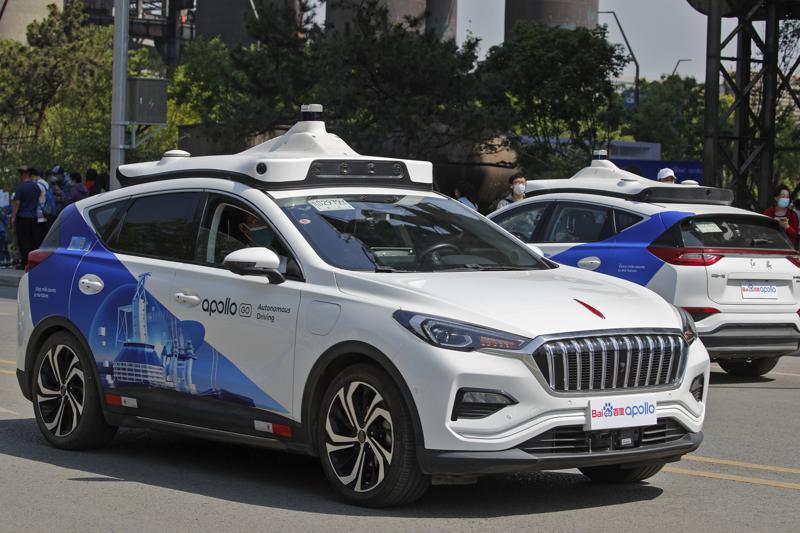
Technology
In Beijing, Baidu has launched a paid driverless taxi service.

Baidu, the Chinese tech giant, launched a paid driverless taxi service on Sunday, making it the first company in China to commercialize autonomous driving.
Unlike previous Baidu autonomous driving demonstrations in Beijing, there was no safety driver in the driver's seat this time. Instead, a member of the safety team was seated in the front passenger seat, ready to respond to any emergencies.
Up to ten Apollo "robotaxis" are now working simultaneously in a 3 square kilometer (1.2 square mile) area in western Beijing, picking up and dropping off passengers at eight stops. Passengers aged 18 to 60 will take the ride for 30 yuan ($4.60).
The park is a former iron and steel factory that has been transformed into a tourist attraction and a potential location for the 2022 Beijing Winter Olympics. On the second day of China's international labor day holiday, an influx of tourists was seen in the park, despite light traffic.
When meeting jaywalkers or curious visitors who approached the vehicles for pictures, the robotaxis is constantly forced to stop.
Kelly Wang and her partner, both of whom work in the artificial intelligence sector, said the ride was fun.
“I would recommend people experience this. There is a strong sense of technology, because nobody is in the driver’s seat,” Wang said.
Her husband was also considering purchasing one for their family.
Passengers can order a robotaxi via the Apollo Go app. Before getting into the taxi, passengers must have their identities checked. When the taxi detects that the passengers have buckled up, it will begin to move.
Amy Li, one of the visitors, expressed concerns about autonomous driving, citing the complexity of driving actions on the road.
“We’ve all had experiences such as other cars jumping the queue or making a sudden lane change. People have emotions while robots don’t, at least at present,” she said “The robots may not be able to deal with such changes.”
Since last year, Baidu, which is known for its search engines, has been exploring autonomous driving on public roads. According to a press release, the company's Apollo Go robotaxi service has carried more than 210,000 passengers in three cities across China and plans to expand to 30 cities in the next three years.
“In the future, Baidu Apollo will launch driverless robotaxis in more cities, enabling the public to access greener, low-carbon and convenient travel services, while continuing to improve the unmanned service process and user experience,” said Wang, vice president and general manager of autonomous driving technology at Baidu in a statement.
